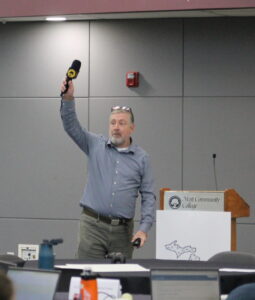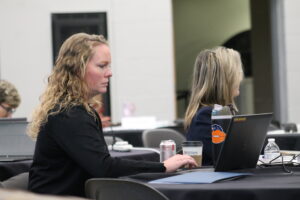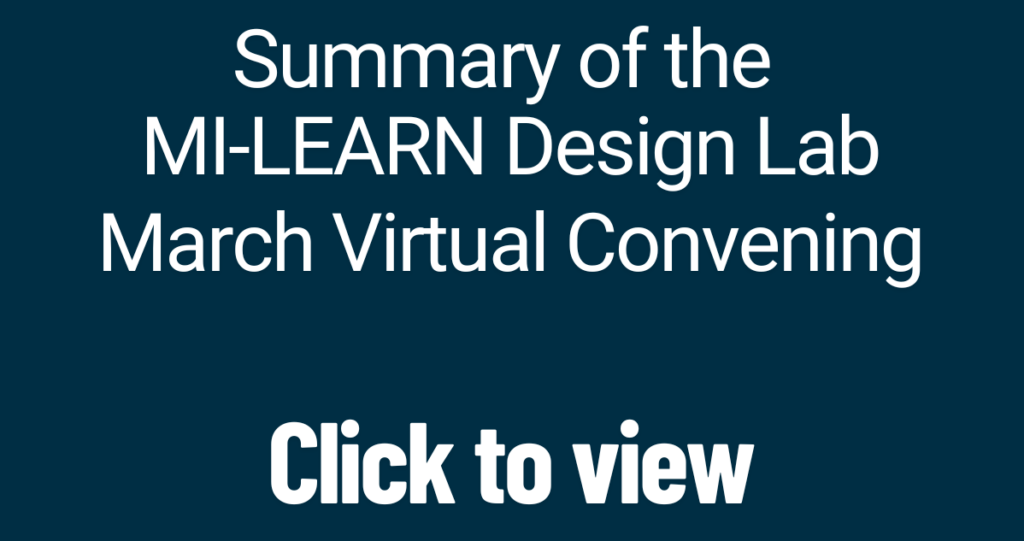MI-LEARN Design Lab Resources
 MI-LEARN Design Lab Resources provide Michigan colleges and universities with vital tools and insights to support adult learner success. These resources offer guidance on designing programs, integrating innovative strategies, and structuring holistic support systems.
MI-LEARN Design Lab Resources provide Michigan colleges and universities with vital tools and insights to support adult learner success. These resources offer guidance on designing programs, integrating innovative strategies, and structuring holistic support systems.
First, these resources include materials from our convenings—such as panel recordings, slide decks, and workshop handouts. They also capture key content on accelerated courses, employer engagement, change management, and holistic student support.
Importantly, they spotlight promising practices like competency-based education, micro-credentials, and credit for prior learning.
Next, these resources help institutions explore flexible and adult-friendly program designs. For example, faculty and staff can access guidance on designing 7- and 8-week course schedules or incorporating work-based learning. Additionally, the materials guide teams in structuring student support models that encompass adult learners, ranging from academic advising to non-academic services.
 Moreover, the resources serve as a foundation for collaboration. Participating institutions can revisit workshop slides, research tools, and cohort planning notes. In turn, this supports momentum between convenings and encourages peer-to-peer sharing of ideas and adaptations.
Moreover, the resources serve as a foundation for collaboration. Participating institutions can revisit workshop slides, research tools, and cohort planning notes. In turn, this supports momentum between convenings and encourages peer-to-peer sharing of ideas and adaptations.
Ultimately, the MI-LEARN Design Lab Resources elevate the capacity of colleges and universities to advance systems-level change. They reinforce a data-informed, learner-centered approach and support strategic planning, grant preparation, and implementation. By connecting insights, tools, and planning models, these resources empower teams to transform institutional practices in the service of adult learners.
